Promote Menopause Inclusivity
Supporting women is good for business
OUR MISSION
Creating workplaces for women where opportunities are limitless.
OUR IMPACT
We engage.
We train.
We build better businesses.
Organisations served
65+
Professionals supported
30K+
Resources delivered
45+
Annual APAC Menopause Event
Sold out
“ It’s 50% of the population, 40% of their life and no one’s talking about it. it was a real lightbulb moment for me. ”
OUR VALUES
We like to walk the talk and live our values.
We are bold.
We use our voice to speak for others who can't or won’t speak for themselves. We ensure they have access to evidence-based information and best practice menopause care in the workplace and beyond.
We are changemakers.
We are committed to ensuring that persons directly impacted by menopause have a positive experience. We strive to offer physical symptom management, mental support, a feeling of workplace understanding, a community to share with, and access to information for individuals to share with their doctors. Our success is to make a meaningful impact on the lives of those going through the menopause transition
We are leaders.
We are a forward thinking organisation that is pushing against the status quo on how menopause is accepted in society, in the medical profession and in the workplace to ensure all persons have the opportunity to experience a positive menopause transition.
We are a community.
A shared experience allows us to belong and connect with others; something that is very much needed during a time that is often lonely but experienced by all women.
We create spaces where persons impacted by menopause can a sense of belonging so they never feel alone.
OUR LEADERSHIP TEAM
Lisa Tarquini
FOUNDER
Lisa Tarquini is a UK Registered Nutritionist and a Licensed Menopause Champion, with Menopause Experts Group. She is on a mission to raise awareness, educate and empower anyone impacted by menopause. Lisa wants to signpost women, trans and non-binary people to best practice menopause care; to train professionals so that they can provide the best service to anyone experiencing menopause; and to provide specialised training and support to organistions to positively impact cultural change around menopause.
Menopause is not the end but rather a new beginning. It’s a chance to reeducate and empower yourself with health knowledge, and to implement new lifestyle habits that enable a positive menopause transition and stronger second act.
At The Table
MARKETING & OPERATIONS

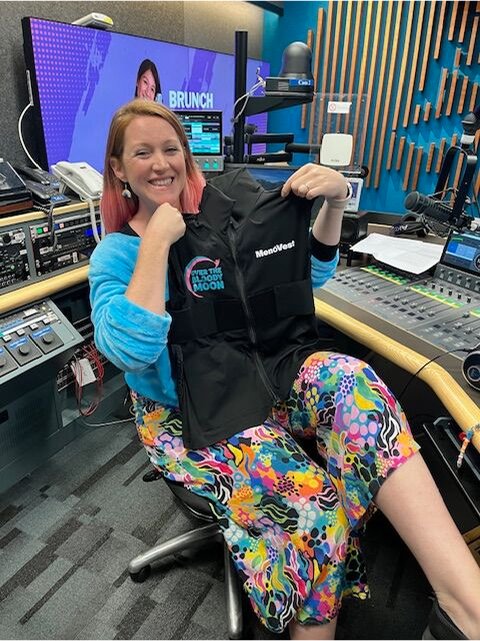
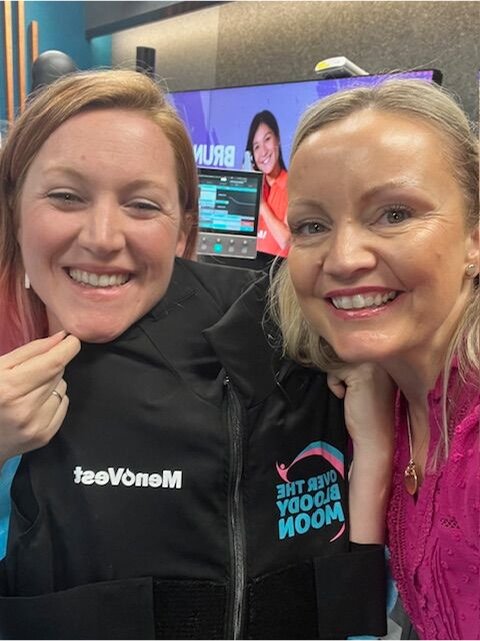




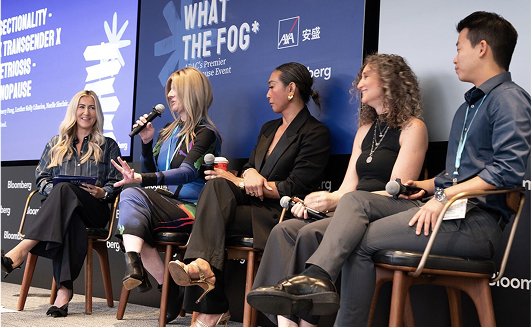
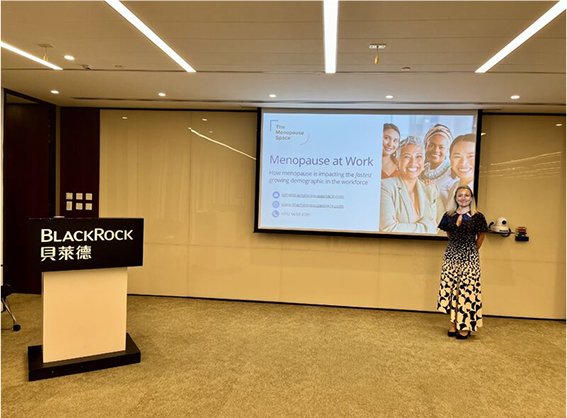
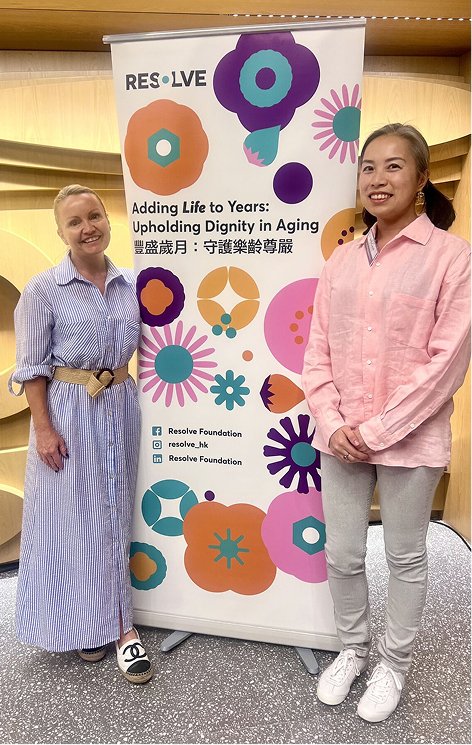
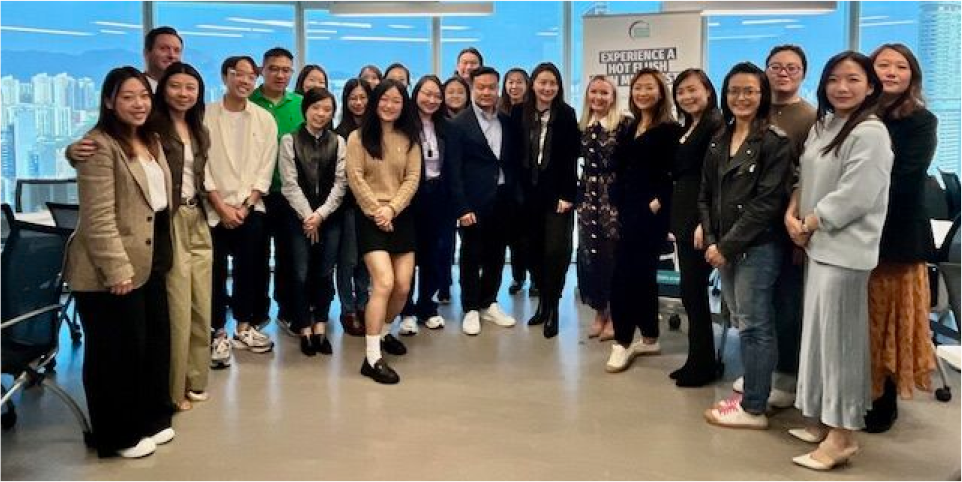











WHERE TO FIND US
Beyond our core offerings, we host two flagship events annually. Accepting Your New Normal in March, and What The Fog* Menopause Festival in October.
Aha! A Holistic Approach!
What The Fog*
Follow our LinkedIn for more information on where we are, and the latest menopause news in APAC.
FAQ
-
Currently employees of The Menopause Space are not medically trained therefore for medical questions please seek advice from a qualified doctor.
-
So glad you asked! We’re always looking to get the right people involved. Send us an email to info@themenopausespace.com and we’ll get in touch.
-
Is menopause still taboo in your company? That is to say, people can’t speak openly about their experiences or ask for support? The full Menopause Experts Approved Accreditation process might seem a little daunting right now so The Menopause Space has some steps you can take to raise awareness.
For more information on Certifications, Education and Classes that we offer, visit our section on additional services on our Become a Menopause Friendly Organisation to learn more!
-
A menopause advocate is someone who speaks for, supports and represents menopausal women. Examples of a menopause advocate include you, a spouse/partner, a health professional, a manager or colleague.
Learn more here.
-
Anyone who is interested in learning more about menopause and how it can impact a person's life can enroll in the Menopause Advocate training course. Examples could be:
You so that you can be an advocate for your own health,
A spouse/partner so they can advocate for you,
A health professional such as a personal trainer/nutritionist so they fully understand the impact of menopause on the body or
A manager so they can provide a supportive working environment
Interested? Learn more here.
-
This is something we aim to provide in the not-too-distant future!
Feel free to browse our community stories, listen to our podcast or connect with us at the info@themenopausespace.com to see how we can come together and support each other.
-
Menopause is a universal experience for women, naturally occurring at the mean age of approximately 51 years. A small number of women can experience premature menopause before the age of 40 due to conditions like Premature Ovarian Insufficiency (POI), while others may undergo menopause due to surgical removal of the ovaries or cancer treatment.
Read more about it here.
-
Hormone Replacement Therapy (HRT) is one of many treatments of menopause symptoms and it is of personal preference whether you choose to take it. The aim of HRT is to relieve symptoms associated with estrogen deficiency such as hot flashes, anxiety, poor sleep, vaginal dryness and osteoporosis.
Read more here.
-
Menopause does not directly cause weight gain. The fluctuation and decline in sex hormones during the menopause transition causes a decline in lean muscle mass and a shift in weight distribution to the abdominal area. It can also lead to poor sleep, lethargy, increased stress levels, lack of exercise and poor food choices and this can contribute to weight gain.
If you are experiencing adverse changes in your body and want to learn more about nutrition during the menopause transition the Reset 40 programme to learn how to nourish your body for a strong and positive second act.
-
As our sex hormones estrogen and testosterone start to decline during the menopause transition so does lean muscle mass and bone mineral density. Increasing your daily protein intake can help to maintain lean muscle mass and bone mass.
Learn more here.



















